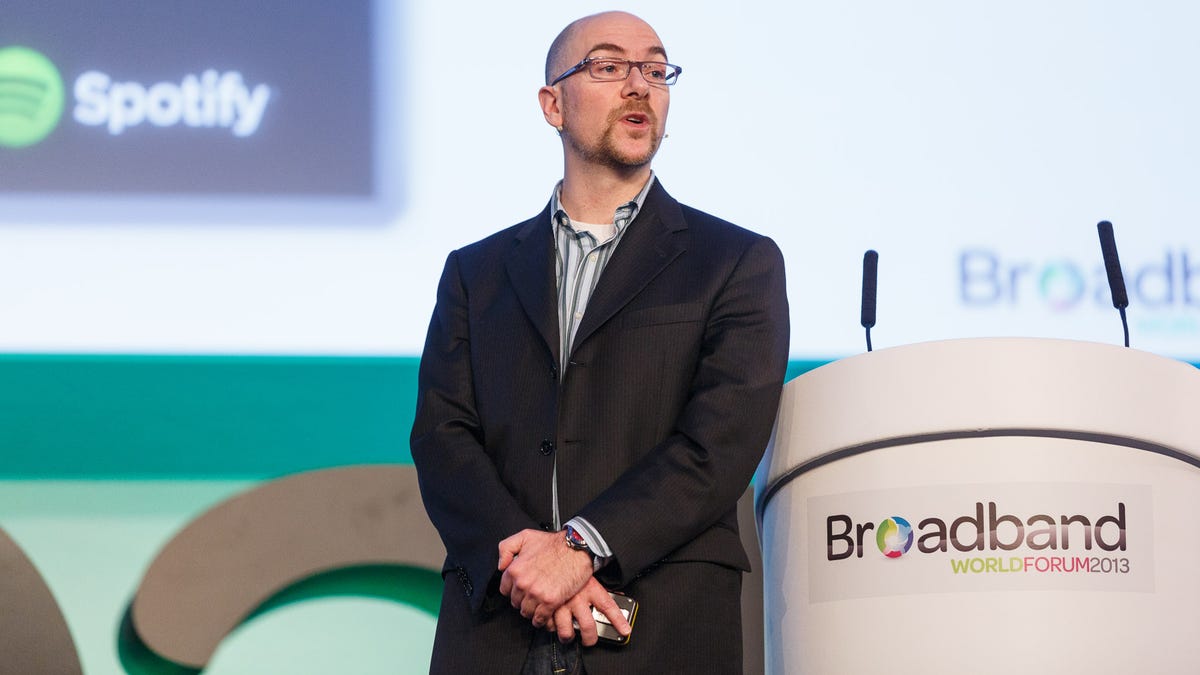Spotify to carriers: We don't need to be enemies
Carriers sometimes bridle at "over the top" companies that sell services relying on their mobile networks. Spotify's sales pitch is that it can help carriers with their business.

AMSTERDAM -- Spotify is one of the most prominent "over the top" services that tax the mobile data networks of wireless carriers, but the music-streaming service should be seen as an ally, not an enemy, in the view of the company's telco partnership leader.
Michael Abbatista argued here that a Spotify partnership actually helps carriers by reducing subscriber churn -- the tendency for customers to hop from one carrier to another. And particularly with younger customers, it can make the carrier look better.
"We bring a certain brand uplift," Abbatista said at the Broadband World Forum show here Thursday.
Over-the-top services are a problem for carriers that don't want to be relegated to mere "dumb pipe" status, a company that merely delivers YouTube videos, WhatsApp text messages, Facebook photos, and Spotify music. Such services consume ever larger amounts of data, so carriers sometimes see them as a problem.
Spotify thinks the partnerships can ease relations -- and of course bring in new revenue for itself, too.
Its carrier deals take a variety of forms, the most basic being a "soft bundle" in which carriers offer Spotify's service as an add-on option that can be paid with carrier billing. A "hard bundle" service means a Spotify premium subscription rates included in the standard monthly mobile fees, often for a higher-end monthly plan. That's what Spotify likes best, because the paying subscribers tend to keep on paying.
"We're getting them into the paid funnel and keeping them in the paid funnel," Abbatista said. For hard-bundle deals that offer a year of Spotify service, 80 percent of customers still are paying customers eight months after the deal ends for a particular subscriber.
Spotify has such deals with Vodafone in the UK and KPN in the Netherlands, he added.
Through deals with the mobile network operators, "We get marketing and promotion, usually on a scale we'd never be able to afford on our own," he said. "And we're turning these people into paying customers."
Spotify offers 20 million tracks of streaming music in 32 countries. It plans to expand to more than 100 countries by the end of 2014, Abbatista said. So far, it's paid $500 million in royalties to the music industry, he added, including some generated by young people who previously only listened to pirated music.
"For a lot of our users, this is the first time they paid for music," he said.
Updated 5:10 a.m. PT to delete an incorrect statistic about Spotify member demographics and to clarify the difference between hard and soft bundles.

